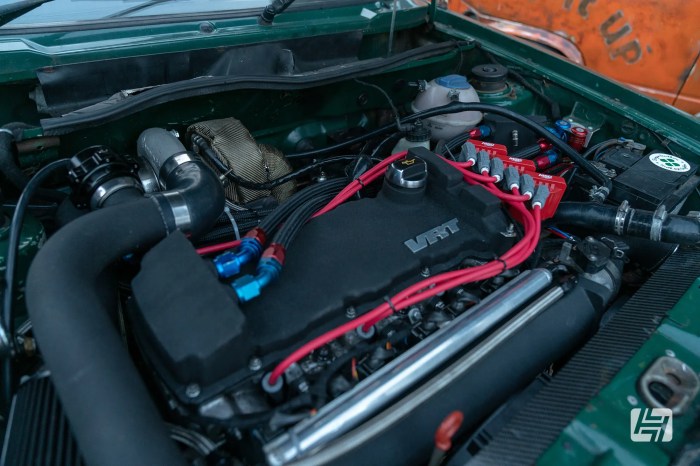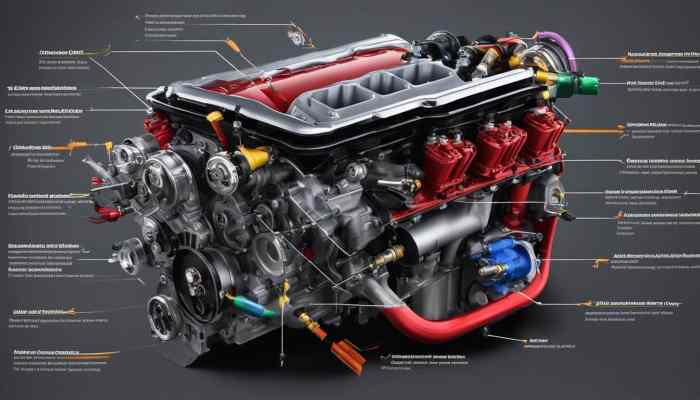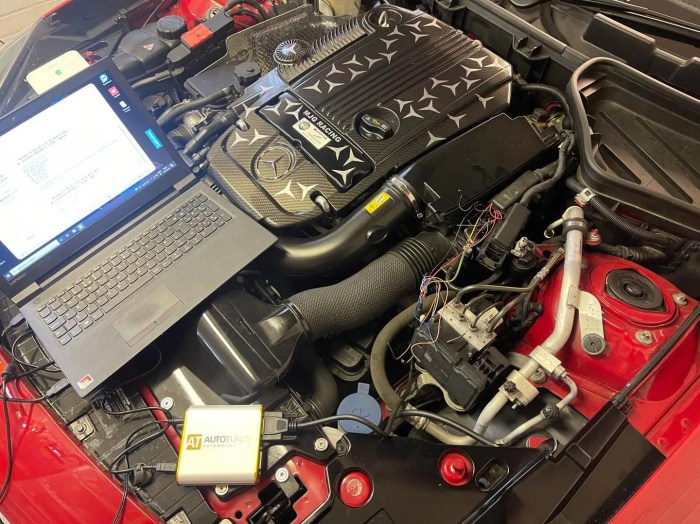Engine tuning tips are essential for anyone looking to boost their vehicle’s performance and efficiency. Whether you’re a car enthusiast eager to explore the depths of your engine’s capabilities or just someone wanting a bit more power for your daily ride, understanding the tuning process can open up a world of enhancements. From basic adjustments to advanced techniques, the right tuning can lead to increased horsepower, improved torque, and a smoother driving experience.
Throughout this guide, we’ll dive into the various types of tuning available, basic and advanced techniques, essential tools, and safety precautions to ensure you handle the tuning process properly. Plus, we’ll discuss common mistakes and how to tailor your tuning approach depending on the type of vehicle you have, whether it’s a sports car or a trusty truck.
Introduction to Engine Tuning

Engine tuning is a critical process that enhances a vehicle’s performance by optimizing its engine’s efficiency and power output. It involves adjusting various parameters within the engine to ensure it operates at its best. The importance of engine tuning lies in its ability to improve acceleration, fuel efficiency, and overall driving experience. By tuning an engine, drivers can achieve a more responsive and powerful vehicle.
There are several types of engine tuning available, each catering to different performance goals. These include software tuning, physical modifications, and a combination of both. The benefits of tuning an engine are numerous and can lead to increased horsepower, improved torque, and enhanced fuel economy, making it a popular choice among automotive enthusiasts.
Basic Engine Tuning Techniques

Basic engine tuning techniques form the foundation for enhancing vehicle performance. Common adjustments that can be made include optimizing air-fuel ratios, adjusting ignition timing, and upgrading exhaust systems. These modifications can significantly improve an engine’s efficiency and power delivery.
To increase horsepower and torque through tuning, consider the following techniques:
- Reprogramming the Engine Control Unit (ECU) for optimal fuel mapping.
- Installing a high-performance air intake system to improve airflow.
- Upgrading to a less restrictive exhaust system to reduce backpressure.
- Tuning the ignition timing for better combustion efficiency.
Advanced Engine Tuning Methods
Advanced engine tuning methods are employed by professionals to extract maximum performance from a vehicle. These methods often include comprehensive ECU remapping and the use of sophisticated tuning software that analyzes real-time engine data. Software tuning plays a crucial role in modern vehicles, enabling precise adjustments without the need for extensive hardware changes.
When comparing ECU tuning to physical modifications, ECU tuning offers a less invasive approach, often leading to significant performance gains with minimal impact on vehicle integrity. Physical modifications, while sometimes necessary, can lead to more drastic changes that might affect the vehicle’s warranty or reliability.
Tools Required for Engine Tuning
A variety of tools are essential for effective engine tuning. These tools help diagnose issues, make adjustments, and monitor performance improvements. Key tools include:
- OBD-II Scanner: For reading diagnostic trouble codes and real-time data.
- Dyno Tuner: To measure horsepower and torque output accurately.
- Wideband O2 Sensor: For precise air-fuel ratio monitoring.
- Performance Tuning Software: To adjust ECU settings and optimize performance.
Diagnostic tools are particularly important in the tuning process, as they provide insights into engine performance and assist in identifying areas for improvement.
Engine Tuning Safety Precautions
Prior to engaging in engine tuning, certain safety measures should be observed. It is essential to work in a well-ventilated area to avoid exposure to harmful fumes. Additionally, using personal protective equipment such as gloves and goggles can prevent injuries.
Improper tuning can pose various risks, including engine damage, reduced reliability, and safety hazards while driving. To ensure a safe working environment, always follow manufacturer guidelines and consult with experienced tuners when making significant modifications.
Common Mistakes in Engine Tuning, Engine tuning tips
Several common errors occur during the tuning process that can lead to suboptimal results. These include:
- Failing to monitor engine temperatures, leading to overheating.
- Neglecting regular maintenance, which can hinder performance gains.
- Over-tuning without proper data, resulting in engine instability.
Avoiding these pitfalls is crucial for achieving successful tuning outcomes. Poor tuning can significantly impact engine performance and longevity, making it imperative to approach the tuning process with care and attention to detail.
Engine Tuning for Specific Vehicle Types

Tuning needs can vary greatly based on the type of vehicle. For instance, sports cars often benefit from aggressive tuning aimed at maximizing speed and agility, whereas trucks may require tuning focused on torque and towing capacity. Here are some tailored tuning tips:
- Sports Cars: Focus on lightweight components and high-performance exhaust systems to enhance speed.
- Trucks: Emphasize upgrading the intercooler and turbocharger to improve towing capabilities.
- Daily Drivers: Aim for a balanced approach, enhancing fuel efficiency without sacrificing too much power.
Understanding these differences allows for more effective tuning strategies based on the vehicle’s intended use.
Future Trends in Engine Tuning
The landscape of engine tuning is rapidly evolving, with emerging technologies influencing the way enthusiasts and professionals tune vehicles. As electric and hybrid vehicles gain popularity, tuning methods will need to adapt to accommodate their unique powertrains. Future advancements in tuning software and hardware are expected to make tuning more accessible and efficient.
For instance, the integration of artificial intelligence in tuning software may allow for real-time optimization based on driving conditions, enabling a more personalized driving experience. As the automotive industry shifts towards sustainability, the focus on improving efficiency through advanced tuning will likely become more pronounced, ensuring that both performance and environmental concerns are addressed.
Closing Summary: Engine Tuning Tips
In conclusion, mastering engine tuning is not just about having the right tools or knowledge; it’s about understanding your vehicle and its specific needs. With the insights shared in this guide, you can navigate the tuning landscape more confidently, avoid common pitfalls, and make informed decisions that enhance both performance and longevity. As technology continues to evolve, staying updated on future trends will also help you keep your engine in peak condition for years to come.